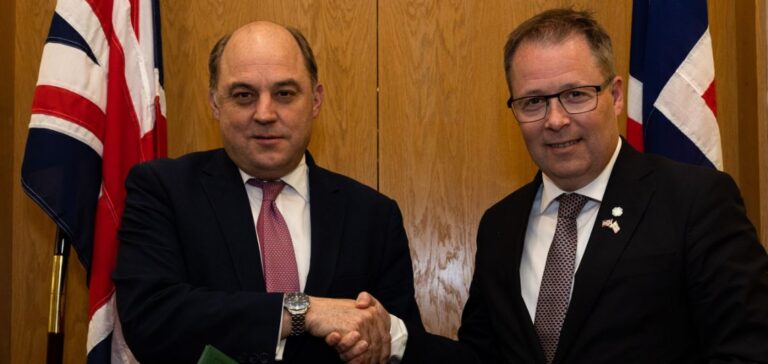The United Kingdom and Norway, two key energy partners, announced on Thursday an intensification of their cooperation to protect their critical submarine infrastructure. This decision comes in response to growing threats, particularly from Russia, which has developed military capabilities to target these sensitive infrastructures.
Defence Ministers Tore Sandvik of Norway and John Healey of the UK expressed their intention to bolster their collaboration, especially regarding the protection of underwater pipelines and cables connecting the two nations. In 2023, Norway supplied over 30% of the gas consumed by the UK, making this energy partnership crucial for both countries.
During a visit to northern Norway, Healey and Sandvik inspected vessels dedicated to underwater surveillance, including the British ship Proteus and the Norwegian coast guard vessel Bison. During the visit, Sandvik addressed the potential threats to these infrastructures, highlighting that Russia possesses military capabilities capable of attacking Western underwater infrastructures in times of heightened tensions. According to him, this threat could materialise as targeted attacks if the conflict between Russia and Ukraine escalates.
The two nations share vital submarine infrastructures, including pipelines that transport Norwegian gas to the UK, as well as several cables linking the two countries. Recent tensions, exacerbated by Russian military actions and accusations of sabotage against infrastructures in the nearby Baltic Sea, have prompted European leaders to heighten their security measures.
In light of these growing risks, the Norwegian minister stated that cooperation with the UK would be strengthened to ensure the protection of their submarine infrastructure. “We are now sending a very clear message to anyone considering sabotaging our underwater infrastructure: we will see you,” he said, emphasising the two countries’ capacity to monitor and protect these strategic assets.
Strengthening Cooperation in the Context of Geopolitical Tensions
The cooperation between Norway and the UK extends beyond the security of submarine infrastructures. It also reflects a broader geopolitical context, with Russia seen as a growing threat to European security. During a previous visit to Kirkenes, near the Russian border, John Healey reminded that Russian aggression is not limited to Ukraine but affects the broader European security landscape.
Both ministers stressed the need for heightened vigilance in the face of potential attacks on critical infrastructures across Europe. This intensified cooperation also aligns with the aim to strengthen military and surveillance capabilities in the Arctic region, where geopolitical tensions with Russia are particularly acute.
A Strategic Concern for Both Countries
For Norway, the protection of its submarine infrastructure is all the more crucial given its central role in the country’s economy, particularly in the energy sector. As the UK’s primary supplier of natural gas, Norway must ensure the security of its underwater installations, especially as the risk of attacks continues to rise.
For its part, the UK relies heavily on Norwegian gas imports to meet part of its energy needs. Cooperation with Norway in this field is therefore vital to ensuring the country’s energy stability, especially at a time when diversifying energy supply sources has become a national priority.






















